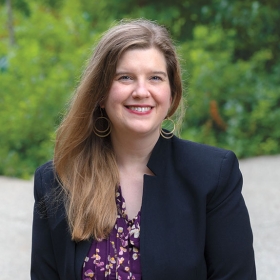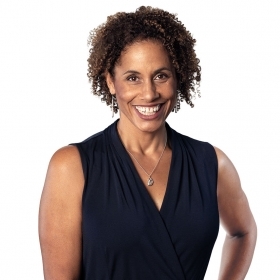Debt was not something Susan Ellison, assistant professor of anthropology, ever expected to write a book about. “I came kicking and screaming to that,” she says. “But when you ‘follow the ethnographic,’ as we say,”—as...

Debt was not something Susan Ellison, assistant professor of anthropology, ever expected to write a book about. “I came kicking and screaming to that,” she says. “But when you ‘follow the ethnographic,’ as we say,”—as you get embedded in people’s lives and pay attention to the surprising things that emerge during fieldwork—“it takes you in unexpected directions. That’s one of the lovely things about anthropology.”
When Ellison embedded herself in criminal courts and legal aid centers in Bolivia for her 2018 book Domesticating Democracy, about the politics of conflict resolution, the subject of indebtedness became impossible to ignore. “Debt issues kept emerging again and again and again,” she says. “About one-third to one-half of cases that came through … were related to debt.”
Ellison recently returned from a year on research leave back in Bolivia, working on her next project about issues of debt and fraud. Wellesley is rare among colleges for guaranteeing its pre-tenure faculty academic leave to pursue original research.
Now, Ellison plans to write about Bolivians who have become entangled in pyramid schemes, multilevel marketing companies (MLMs), and illicit land sales, and the ripple effects these create. For example, one woman Ellison got to know worked as a teacher, but she was also a small-scale money-lender to her colleagues, friends, and neighbors. She became involved in several MLMs, a national credit-share game, and a pyramid scheme called Paydiamonds.
“One of the things you get to do as an anthropologist … when you get to know someone, you begin to understand the larger complexities of why they take the risk to participate in something like that, of whether or not you can call the person a victim, because oftentimes they bring in other people who are victimized,” Ellison explains. She takes the long view of her subjects, and, after working in Bolivia for 18 years, she has a deep network there.
Ellison’s path to anthropology was similarly long and peripatetic. She began working in Bolivia with environmental justice and indigenous rights groups immediately after her undergraduate work, before completing a master’s degree at Harvard Divinity School and finally earning a Ph.D. in anthropology from Brown. She has been on the faculty at Wellesley since 2015.
Next summer, Ellison will go back to Bolivia to conduct follow-up research before writing up her findings in a book. In the meantime, she’s looking forward to returning to the classroom and teaching her own students how to “follow the ethnographic,” wherever it may lead.


